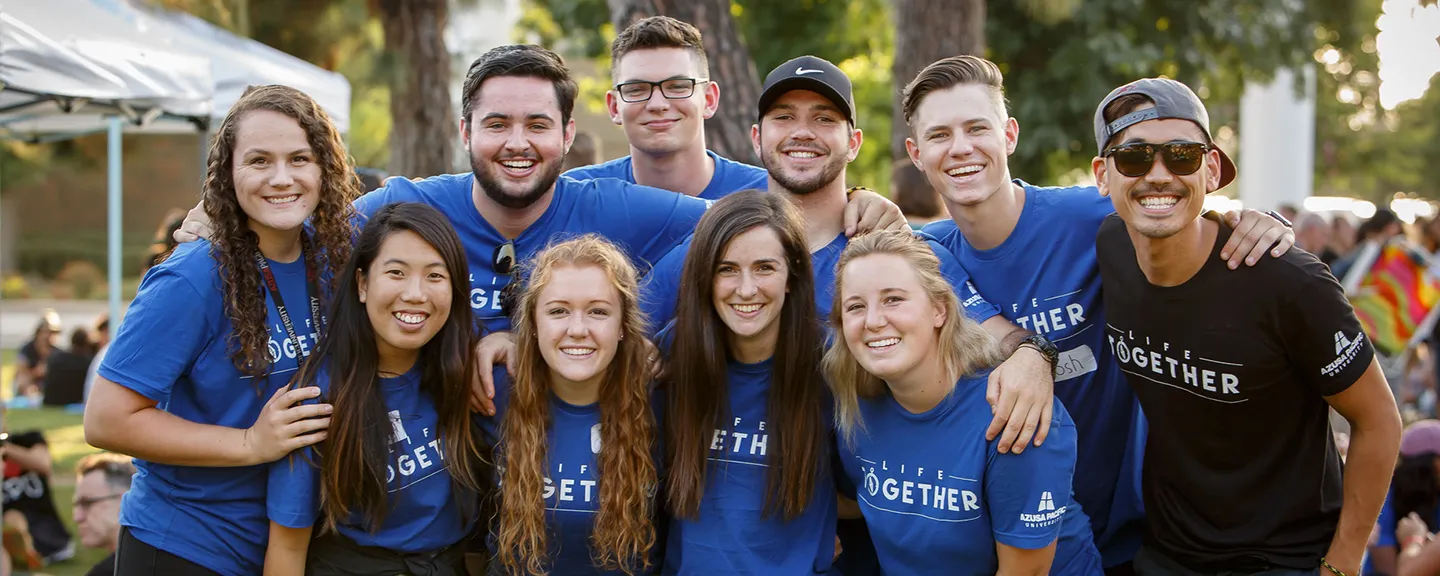- Home
- >
- APU Articles
- >
- News Article
How Extracurricular Activities in College Can Add to Your Student’s Degree
November 27, 2017 | Written By Naomi Mannino

You might worry that extracurricular activities could further distract from his or her studies. But certain extracurricular activities in college, like student leadership programs, volunteering programs, or mentoring programs, can help students build real leadership skills and character. In fact, the skills learned while participating in these programs can enhance their university experience, better equipping them for life outside after college.
Extending Beyond the Classroom
Achievement-oriented students may be drawn to opportunities in student leadership programs. These programs can relate to almost any interest, whether it’s student life, faith, volunteering, business, sports, or student government.
“Many students apply for student leadership positions because they want to give back or invest in the lives of other students in similar ways they have experienced others investing in them,” says Coba Canales, associate campus pastor for Discipleship Ministries at Azusa Pacific University.
Some are specific to certain majors (which may be reserved for upperclassmen), while other student leadership experiences are available for freshmen, such as those in student government, campus life departments, and other positions affiliated with various interest clubs on campus.
But students do not have to be in a leadership position to realize the benefits of extracurricular activities. Students with a sense of service might consider volunteering or serving through a local or international mission. Or they might get involved in on-campus clubs, which can provide a sense of community and an opportunity to find friends with similar interests. Building these support systems can help ease the transition for incoming students, especially when they are attending far from home. This sense of ease, in turn, can help students focus on their classwork rather than stress out about not having a place to fit in on campus.
Having a Lasting Impact
Involvement in organized extracurricular activities at college is vital in a few different ways, says Canales. First, he says, students are given a chance to work directly with faculty and staff who coordinate and oversee all types of student programming.
“Staff and faculty members will serve as lifelong mentors and coaches for students. They might provide support ranging from writing letters of recommendation, helping students find jobs, and staying connected by counseling and encouraging students long after they’ve graduated from college,” says Canales.
These types of activities, as opposed to just socializing, are developmental in nature. This means students have a chance to reflect on their identity, service, output, vocational direction, and ability to serve in a team environment.
Additionally, student leadership activities and positions can help keep college kids grounded.
“These students are held to a higher standard, which not only provides role models for our campus community, but it gives these leaders a chance to have another motivation to make sound choices as college students,” says Canales. “They may think twice about their decisions in ways that other students who do not have as many responsibilities might not be thinking about.”
While your child’s academic performance should be the first priority, the positive impact extracurricular activities in college can have on your student should not be forgotten. These activities can help students stay grounded, build relationships, and leave college with so much more than just a college degree.